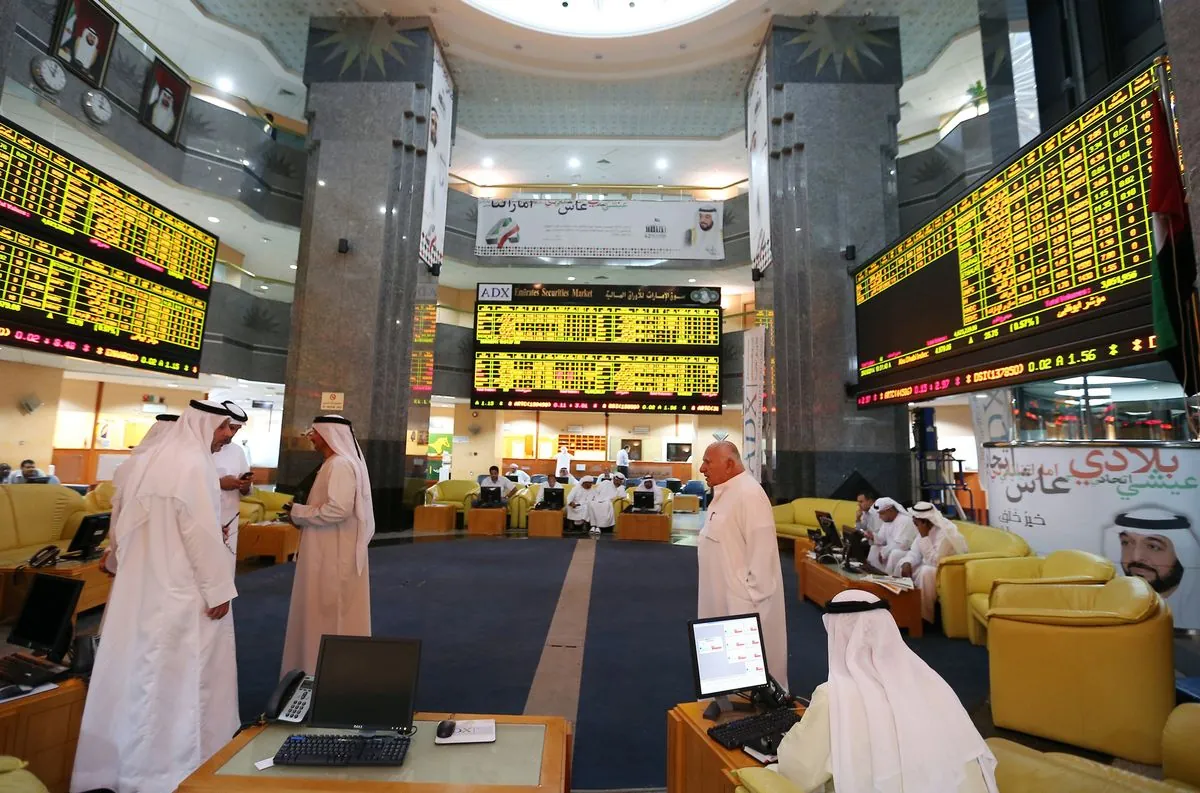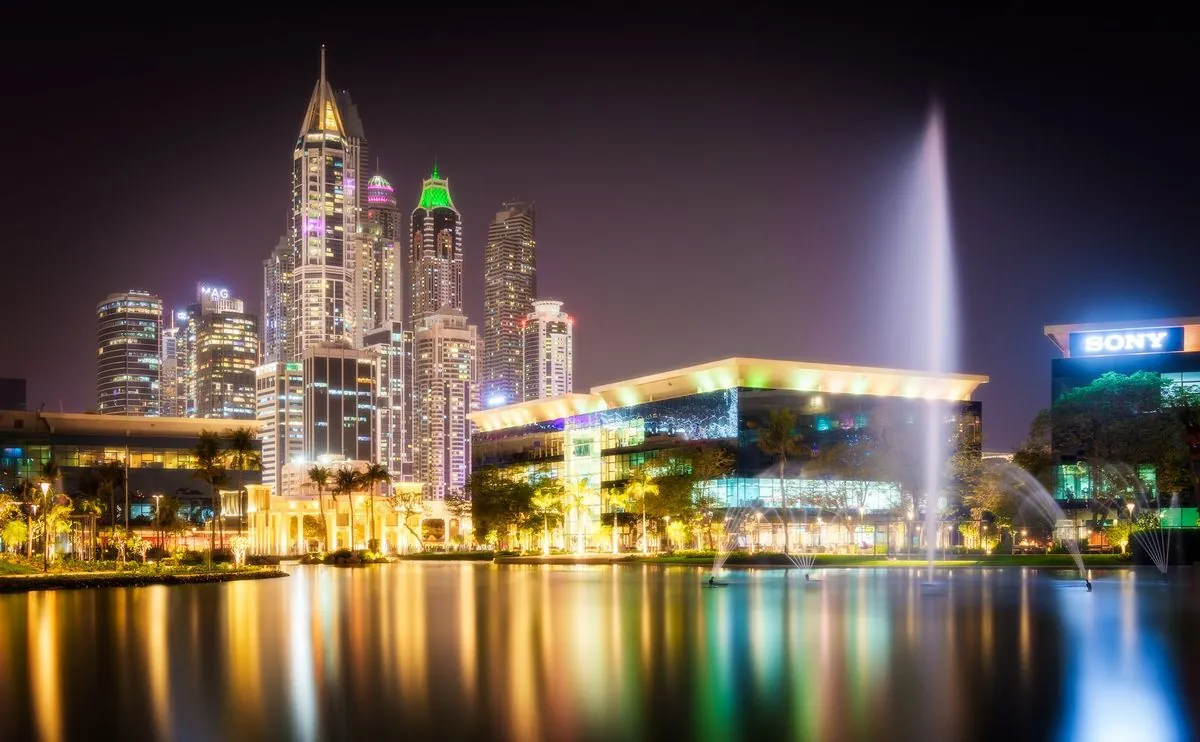Dubai Stocks Flat, Abu Dhabi Rises on Oil and Global Recovery
Dubai's stock market remained unchanged for two consecutive days, while Abu Dhabi's index rose 0.5%. Aramex reported a significant profit decline, impacting Dubai's market performance.

On August 9, 2024, the financial markets in the United Arab Emirates displayed divergent trends. Dubai's stock market remained unchanged for the second consecutive day, while Abu Dhabi's benchmark index experienced a 0.5% increase. This disparity reflects the distinct economic characteristics of these two major UAE cities.
Dubai, the largest city in the UAE, saw its stock market (.DFMGI) hold steady. Founded in 2000, the Dubai Financial Market (DFM) has been a key player in the region's financial landscape. However, recent corporate performances have impacted individual stocks significantly.
Aramex (ARMX.DU), a Dubai-based courier firm established in 1982, reported a substantial 83% decrease in quarterly profit. This news led to a more than 6% drop in its share price, marking the company's most significant decline in nearly 11 months.
Similarly, TECOM Group (TECOM.DU), a prominent business park operator in Dubai, experienced a nearly 4% decrease in its stock value as it traded ex-dividend. TECOM Group is known for managing key business zones such as Dubai Internet City, contributing to Dubai's status as a regional tech hub.

On a positive note, National Central Cooling, commonly known as Tabreed (TABR.DU), saw its shares climb by 2%. This increase followed the company's announcement of a 4% rise in net profit for the first half of 2024. Tabreed, founded in 1998, has established itself as a leading district cooling provider in the UAE.
In contrast to Dubai, Abu Dhabi's stock market (.FTFADGI) demonstrated stronger performance. The capital city's index rose by 0.5%, buoyed by positive movements in key stocks. This growth aligns with Abu Dhabi's position as the world's seventh-largest oil producer, benefiting from rising global oil prices.
First Abu Dhabi Bank (FAB.AD), the country's largest lender formed through a merger in 2017, contributed significantly to the index's rise with a 2.4% gain in its shares. Additionally, International Holding Company (IHC.AD), Abu Dhabi's most valuable listed firm and a diversified conglomerate, ended the day 1% higher.
The contrasting performances of Dubai and Abu Dhabi's markets highlight the UAE's ongoing economic diversification efforts. While Abu Dhabi's economy remains more closely tied to oil wealth, Dubai has developed a more varied economic base, including sectors such as finance, real estate, and tourism.
As the UAE continues to position itself as a global financial hub, with initiatives like the Dubai International Financial Centre (DIFC), the performance of its stock markets remains a key indicator of the country's economic health and investor confidence.


































